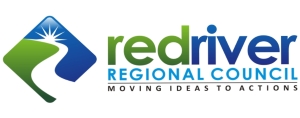Regional Council Interviewing Grafton Businesses
The past year has been full of unprecedented impacts due to COVID-19 pandemic. Businesses have had to adjust their business models to continue to remain operational, dealt with mandatory closures, […]
RFP Released for regional tourism/community development plan
The Red River Regional Council has released an RFP for consulting services for a Region 4 tourism/destination/community development plan. The RRRC seeks a contractor with a demonstrable portfolio for successful […]
Pembina and Walsh counties award funds to cities for community betterment projects
Commissioners in Pembina and Walsh counties recently awarded funds to cities for community betterment projects as part of each county’s Self-Help Program. The program is administered by the Red River […]
CDBG Virtual Public Hearing Set for February 25
A public meeting will be held virtually on Thursday, Feb. 25, 2021, at 10 a.m., via the platform Zoom. This public meeting is an important component to the development of […]
Potential housing rehabilitation project in Nelson County seeking applicants and contractors
In partnership with the Nelson County Job Development Authority and Nelson County, the Red River Regional Council (RRRC) is currently seeking interested homeowners for a potential housing rehabilitation project for […]
Regional Council launching regional business retention and expansion project
To respond to the business impacts of COVID-19 and maintain a proactive economic development program, the Red River Regional Council and collaborative economic development partners are launching a regional BR+E […]
Nelson County to Host Housing Forum
The Nelson County JDA is hosting a housing forum on Wednesday, October 28 at 5:30 p.m. at the Lakota Community Center. The event will also be live-streamed on the Red […]
Community Development Block Grant Funds Available Now
The Red River Regional Council’s (RRRC) Community Development Block Grant (CDBG) funding allocation for FY2020 is $205,951. At its August 19, 2020 meeting, the RRRC Board of Directors reviewed pre-applications […]
Economic Resiliency Grant
The North Dakota Department of Commerce recently announced the creation of a $69 million Economic Resiliency Grant (ERG) program available to private companies and nonprofits operating in North Dakota for […]
ND Department of Commerce Provides Community Impact Survey Results
In April 2020, the ND Department of Commerce conducted an individual survey regarding the impacts of COVID-19 having throughout the state. There were over 11,300 respondents statewide. Region 4 (Grand […]
